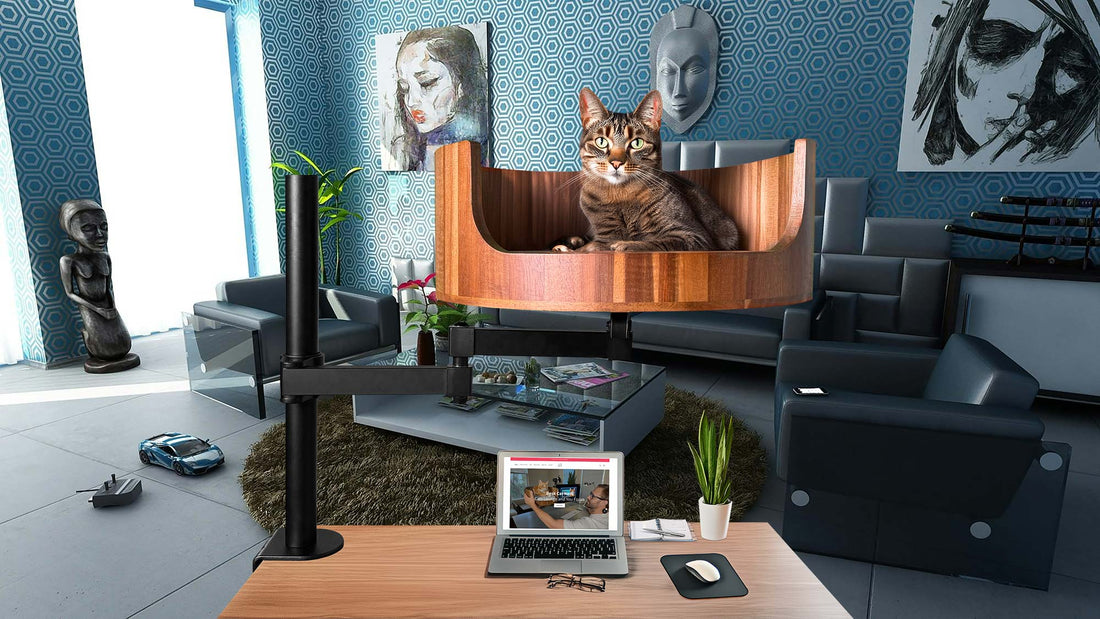
Y Does My Cat Keep Meowing? Understanding the Behavior
Share
If you've ever found yourself wondering why your cat won't stop meowing, you're not alone. Many cat owners have experienced the persistent meowing of their feline companions, leaving them puzzled and frustrated. In this article, we will delve into the reasons behind why cats meow excessively and what you can do to address this behavior.
From attention-seeking to health issues, there are a variety of factors that can contribute to your cat's incessant meowing. We will explore the different motivations behind this behavior and provide insights into how you can decipher what your cat is trying to communicate. By understanding the underlying reasons for your cat's meowing, you can better address their needs and ensure a harmonious relationship between you and your furry friend.
1. Cats meow as a form of communication, so pay attention to the tone and frequency of their meows to understand their needs.
2. Common reasons for excessive meowing include hunger, discomfort, seeking attention, or simply wanting to play.
3. Providing a comfortable and safe environment for your cat, including a designated resting spot like a desk cat nest, can help reduce stress and excessive meowing.
4. Regular playtime, interactive toys, and mental stimulation are important for keeping your cat mentally and physically engaged, which may reduce meowing.
5. If excessive meowing persists despite meeting your cat's basic needs, consulting a veterinarian can help rule out any potential health issues.
Reasons for Excessive Meowing
Cats meow for various reasons, and understanding why your cat is constantly meowing can help address the issue. Some common reasons for excessive meowing include hunger, loneliness, stress, illness, or simply wanting attention. By paying attention to the context of your cat's meows, you can better understand what they are trying to communicate.
Attention-Seeking Behavior
Some cats meow excessively as a way of seeking attention from their owners. This behavior can be reinforced if you respond to their meows by giving them treats, petting them, or playing with them. To address attention-seeking meows, try to establish a consistent routine for interacting with your cat and avoid responding to their meows with attention unless necessary.
Medical Issues
Excessive meowing can also be a sign of underlying health issues in cats. If your cat's meowing is out of the ordinary or accompanied by other symptoms such as changes in appetite, litter box habits, or behavior, it is essential to consult with a veterinarian to rule out any medical conditions. Common medical issues that can cause excessive meowing include hyperthyroidism, urinary tract infections, or dental problems.
Environmental Stress
Changes in your cat's environment can also trigger excessive meowing. Cats are creatures of habit and may become stressed in new environments, with new pets, or changes in routine. Providing your cat with a safe and comfortable environment, plenty of mental and physical stimulation, and a consistent routine can help reduce stress-related meowing behaviors.
Senior Cats and Cognitive Dysfunction
Senior cats may also experience cognitive dysfunction, which can manifest as disorientation, confusion, and excessive vocalization. If your senior cat is meowing more frequently, it may be a sign of cognitive decline. Consulting with a veterinarian can help determine the best way to manage your senior cat's symptoms and improve their quality of life.
Desk Cat Nest FAQ
Why does my cat keep meowing?
There can be a number of reasons why your cat is meowing excessively. It could be due to hunger, thirst, stress, boredom, attention-seeking behavior, or even a medical issue. It's best to observe your cat's behavior and consult with a veterinarian to rule out any underlying health concerns.
Will the Desk Cat Nest help reduce my cat's meowing?
While the Desk Cat Nest can provide your cat with a cozy and comfortable space to relax and play, it may not necessarily stop your cat from meowing if the meowing is due to other reasons like hunger, stress, or medical issues. However, providing your cat with a stimulating environment and plenty of attention may help reduce excessive meowing.
Can I train my cat to stop meowing?
It is possible to train your cat to reduce excessive meowing through positive reinforcement techniques such as rewarding quiet behavior and ignoring excessive meowing. However, it's important to identify the underlying reason for your cat's meowing and address it accordingly.
How should I introduce my cat to the Desk Cat Nest?
To introduce your cat to the Desk Cat Nest, place it in a quiet and comfortable area where your cat likes to spend time. You can encourage your cat to explore the nest by placing treats or toys inside. Allow your cat to approach the nest at its own pace and provide positive reinforcement when your cat interacts with it.
In conclusion, providing your cat with a comfortable and appealing space, such as the Desk Cat Bed, can help reduce excessive meowing. This innovative cat bed offers a cozy retreat for your feline friend, promoting relaxation and security. By addressing your cat's need for a designated resting area, the Desk Cat Bed can help alleviate stress and boredom, ultimately leading to less meowing and a happier, more contented pet. Consider investing in a Desk Cat Bed today to create a peaceful environment for your beloved companion.



















































